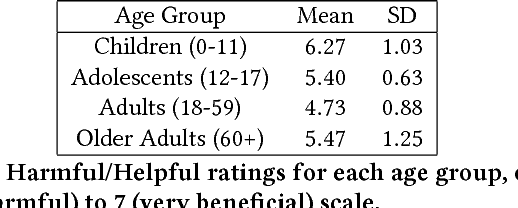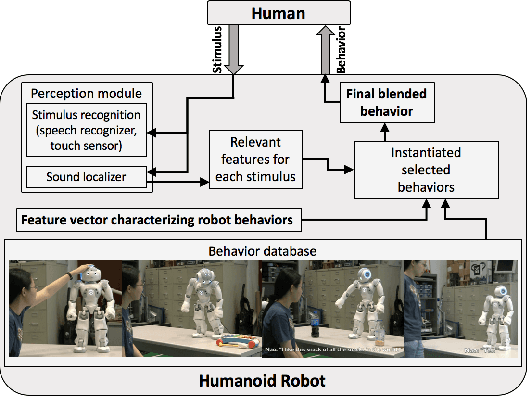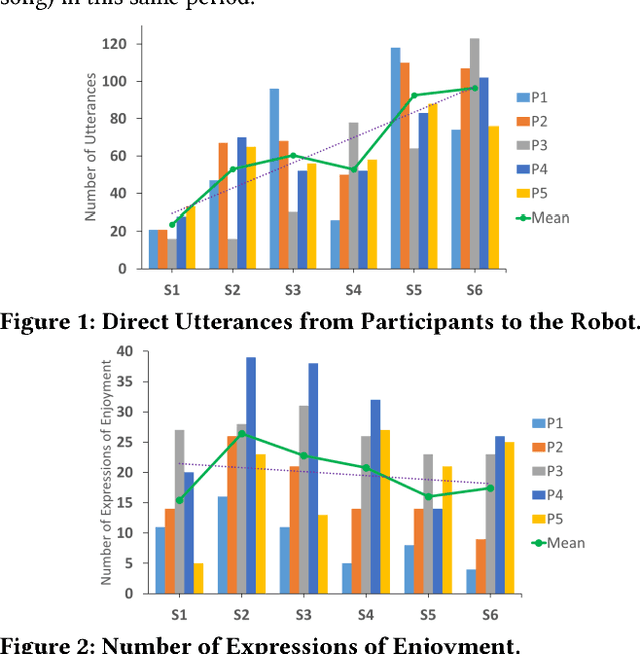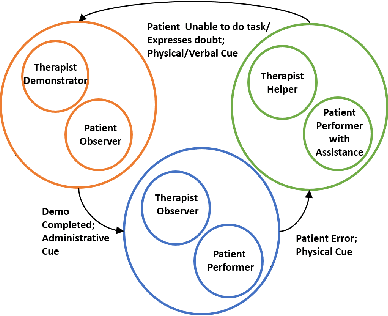Madeleine Bartlett
Recognizing Human Internal States: A Conceptor-Based Approach
Sep 09, 2019


Abstract:The past few decades has seen increased interest in the application of social robots to interventions for Autism Spectrum Disorder as behavioural coaches [4]. We consider that robots embedded in therapies could also provide quantitative diagnostic information by observing patient behaviours. The social nature of ASD symptoms means that, to achieve this, robots need to be able to recognize the internal states their human interaction partners are experiencing, e.g. states of confusion, engagement etc. Approaching this problem can be broken down into two questions: (1) what information, accessible to robots, can be used to recognize internal states, and (2) how can a system classify internal states such that it allows for sufficiently detailed diagnostic information? In this paper we discuss these two questions in depth and propose a novel, conceptor-based classifier. We report the initial results of this system in a proof-of-concept study and outline plans for future work.
Proceedings of the Workshop on Social Robots in Therapy: Focusing on Autonomy and Ethical Challenges
Dec 18, 2018



Abstract:Robot-Assisted Therapy (RAT) has successfully been used in HRI research by including social robots in health-care interventions by virtue of their ability to engage human users both social and emotional dimensions. Research projects on this topic exist all over the globe in the USA, Europe, and Asia. All of these projects have the overall ambitious goal to increase the well-being of a vulnerable population. Typical work in RAT is performed using remote controlled robots; a technique called Wizard-of-Oz (WoZ). The robot is usually controlled, unbeknownst to the patient, by a human operator. However, WoZ has been demonstrated to not be a sustainable technique in the long-term. Providing the robots with autonomy (while remaining under the supervision of the therapist) has the potential to lighten the therapists burden, not only in the therapeutic session itself but also in longer-term diagnostic tasks. Therefore, there is a need for exploring several degrees of autonomy in social robots used in therapy. Increasing the autonomy of robots might also bring about a new set of challenges. In particular, there will be a need to answer new ethical questions regarding the use of robots with a vulnerable population, as well as a need to ensure ethically-compliant robot behaviours. Therefore, in this workshop we want to gather findings and explore which degree of autonomy might help to improve health-care interventions and how we can overcome the ethical challenges inherent to it.
 Add to Chrome
Add to Chrome Add to Firefox
Add to Firefox Add to Edge
Add to Edge